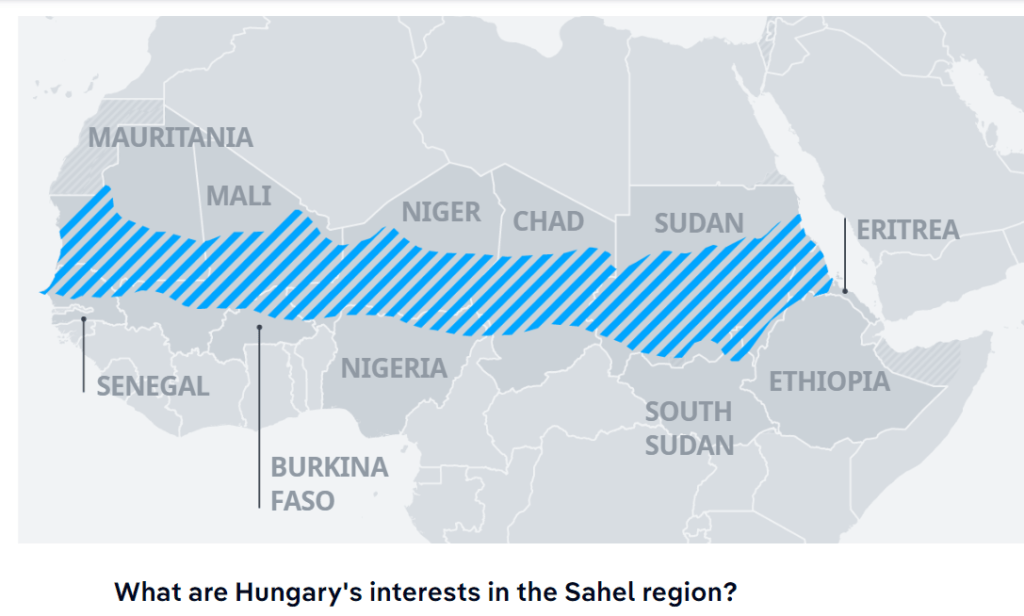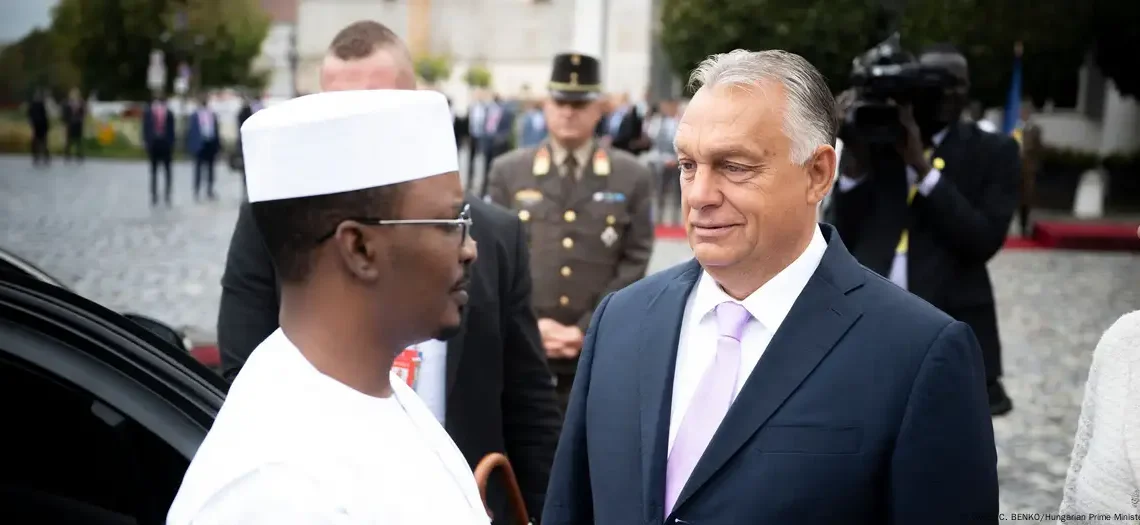Hungary’s Prime Minister, Viktor Orban, is forging ahead with plans to send around 200 soldiers to Chad in a move seen by analysts as part of a broader attempt to exert influence in Africa.
The decision comes after Orban met with Chadian leader Mahamat Idriss Deby Itno in Budapest, signaling the beginning of what Hungary hopes will be a strong partnership with the Sahel region.
Orban took to Facebook to explain his reasoning behind the deployment.
“Chad is a key country in the fight against illegal migration in Africa. Migration from Africa to Europe cannot be stopped without the countries of the Sahel region. That is why Hungary is building a partnership with Chad. We are working on this today and tomorrow with President Deby.”
Viktor Orban
The Sahel region has long been a focal point in the battle to curb migration from Africa to Europe. Chad, which borders Sudan, Libya, Niger, and the Central African Republic, is a crucial player in this effort.
With a population of 19 million, the country’s strategic location in the Sahel and its status as a key ally to Western powers make it an attractive partner for Hungary.
Hungary’s New Ambitions in Africa
Observers have drawn parallels between Hungary’s move and Russia’s expanding influence in the region, particularly under President Vladimir Putin.
Political and security analysts, such as Fidel Amakye Owusu from Ghana, noted that Orban may be seeking economic advantages by deploying Hungarian troops to Chad.
The Sahel is rich in resources, including oil, gold, and uranium — untapped treasures that could be appealing to a nation looking to assert its global presence.

“Like any European country, Hungary is becoming more influential and would also like to have a fair share of Africa’s resources. Gold, cobalt, lithium, and other resources are major pull factors that could pull Budapest to the Sahel.”
Fidel Amakye Owusu
While Hungary’s intentions may seem strategic, not everyone is convinced that sending 200 soldiers will make a significant impact on the ground. Owusu expressed skepticism, noting that “Chad itself is far larger than Hungary and many Western European countries. Therefore, 200 troops may not make an impact.”
He added that such moves are often symbolic, meant to show a nation’s commitment to addressing security threats beyond its borders.
Ryan Cummings, a security analyst at Signal Risk in South Africa, pointed out that military interventions in the Sahel have historically failed to address the root causes of insurgencies.
“The strategy by Sahelian countries, where they’ve leveraged off European or Western forces or Russian forces, focuses on addressing the symptoms and not the causes of these insurgencies,” Cummings said. The effectiveness of Hungary’s intervention, therefore, remains in question.
Orban’s Growing Influence and Foreign Policy
This latest move is just one part of Hungary’s broader foreign policy strategy under Orban, who has sought to deepen ties with countries in the East and South, including Russia, China, and now Africa.
Over the past year, Hungary has strengthened relations with Chad, establishing a humanitarian aid center and diplomatic mission in the capital, and signing agreements related to agriculture and education.
Hungary’s role in Africa has traditionally been minimal, but Orban is pushing to change that.
According to Viktor Marsai, director of the Migration Research Institute, Budapest aims to take on a more significant military role in the Sahel, including training local defense forces.
However, this new role may pose challenges, especially in terms of logistics and resource allocation. Hungary, which has historically participated in military coalitions, will have to “provide everything by itself” this time, Marsai pointed out.
As Hungary increases its presence in Africa, concerns have emerged that Budapest, which has maintained close ties with the Kremlin, might be aligning itself too closely with Russia’s interests.
READ ALSO: Brother Sammy Slams Ohemaa Mercy, Calls Her A Blatant Liar



















